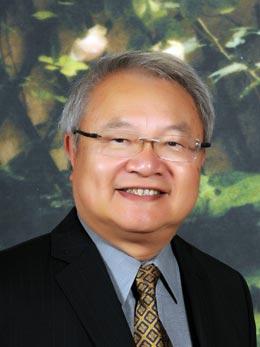Grammar over substance

Tung Chan
New Canadian Media
Special to The Post
Sometimes we can lose track of the larger meaning by focusing on grammar.
I felt flattered when I received a request from Oxford University Press Canada for permission to include my article “Social disconnect leads to ethnic enclaves” in an upcoming e-book. My ego was deflated when I found out the book, Skill Set with Grammar, was about better use of English grammar. My article will be included in the section containing samples of articles that readers can use to practice spotting the correct and improper use of grammar.
Feelings of hurt, humiliation and resentment ran through my mind. My initial reaction was to reject the request. Why do I want my article to be held out as an example of poor English grammar? After all, English has been my working language for almost 40 years. Besides, the article was published by a respectable English newspaper whose editor had gone over the article and corrected any mistakes deemed unacceptable. So, if there was any bad use of grammar, I am not the only person responsible.
I then thought of the so-called Donald Trump theory of publicity: it does not matter if it is good or bad publicity, as long as your name gets mentioned in the media. So with that in mind, I negotiated a very nominal honorarium and gave my permission.
How important it is to master the correct usage of English grammar? I grew up speaking Chinese. I can read and write in both the classical and contemporary-style Chinese with ease. The difference between the two is almost like comparing Victorian English used by Shakespeare, and current-day English used by Margaret Atwood. However, people who are fluent in Chinese in its written form know that the Chinese language has a vastly different grammatical structure than English. The Chinese language does not have tenses. It uses reflective adjectives to describe time. Verbs are not modified according to whether the subject is singular or plural.
Just to make things more complicated, there are many exceptions to the rules in English grammar! So you can imagine how difficult it is for someone like me to try to master English grammar.
But throughout my career, I have seen how native speakers, particularly those who have a degree majoring in English, tend to look down upon or discount the ideas of people who write with improper grammar. To these people, inability to master English grammar is tantamount to weak skills of logic and even low IQ. So instead of trying to understand and appreciate the idea being presented, these folks would just put the paper aside and ignore the ideas no matter how worthy of consideration they may be.
This is a terrible waste of talent and human resources because we live in a multicultural and multilingual environment. There are many people, myself included, who, no matter how hard we try, will have difficulty in achieving perfect use of grammar. But to discount what I have to say in this article because of my grammar mistakes would be to deny the merit of my argument.
There are two ways to remedy the situation. The first is to publish books, like the ones published by Oxford University Press of Canada, to help people master English grammar. The second, I think, is more important from my personal experience: that is for native English speakers to tone down their cultural superiority. They need to remove from their minds the notion that the ability to write in English correctly is an indication of mental capacity. What matters is the substance and not the expression of an idea.
At the end of the day, my article still gets noticed and I am glad I will contribute to improving people's grammar skills. And best of all, I now have bragging rights: having one of my articles published by the Oxford University Press Canada.
Editor's Note: This piece was lightly edited to improve clarity.
Tung Chan is Chairperson of the Board of Trustees at the Canadian Museum of Immigration at Pier 21 and an Honorary Captain of the Royal Canadian Navy. Tung is also a member of the Board of the Vancouver Foundation, the Rick Hansen Institute and the Canadian Foundation Of Economic Education. From 2006 to 2010, Tung was the CEO of S.U.C.C.E.S.S., a social service agency in British Columbia. He is among this year's recipients
This piece was orginally published on www.newcanadianmedia.ca.









